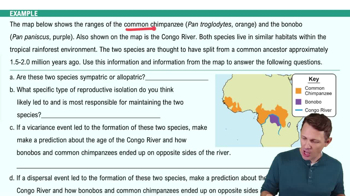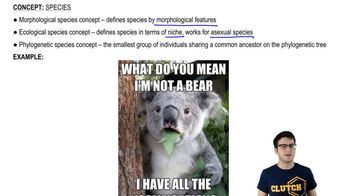What distinguishes a morphospecies?
a. It has distinctive characteristics, such as size, shape, or coloration.
b. It represents a distinct branch in a phylogeny of populations.
c. It is reproductively isolated from other species.
d. It is a fossil from a distinct time in Earth history.





